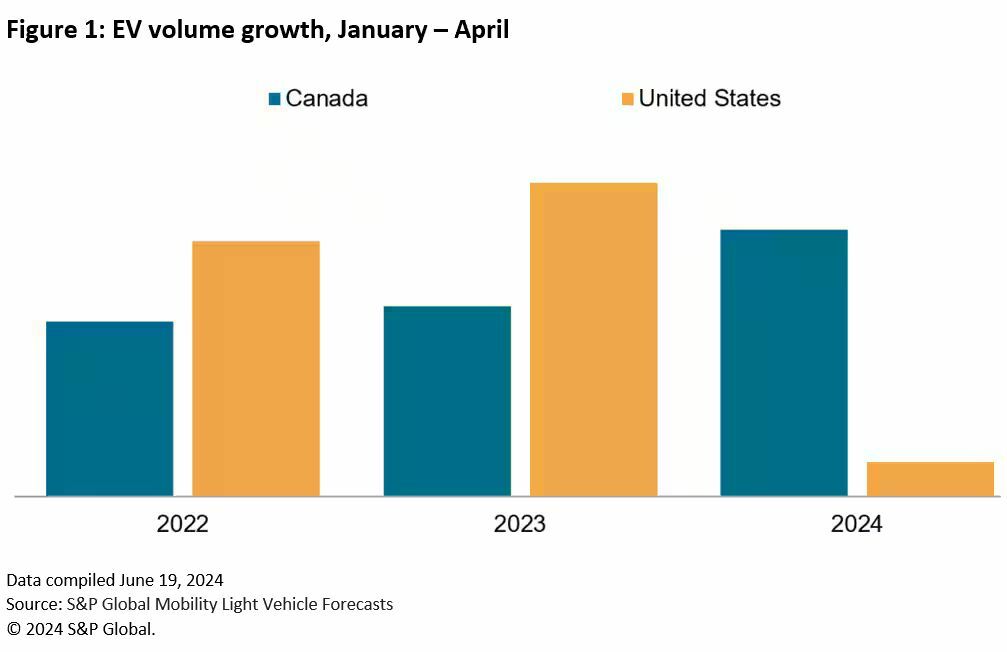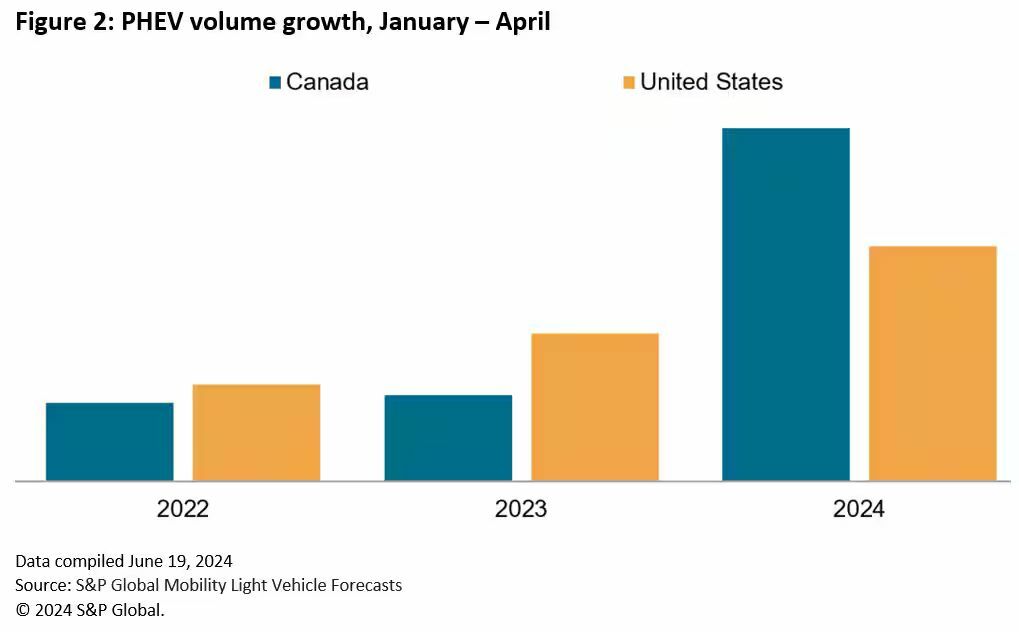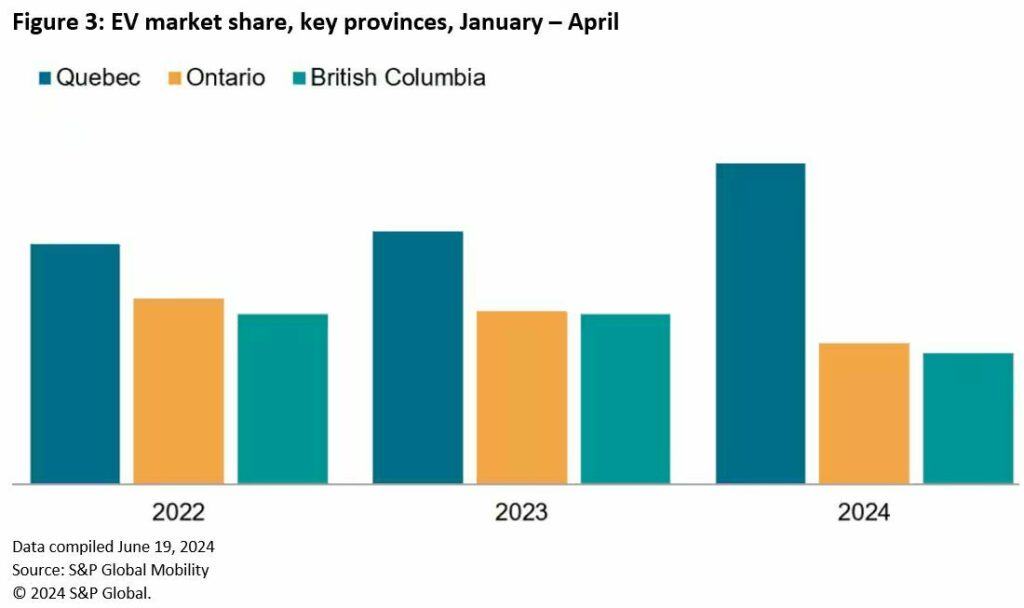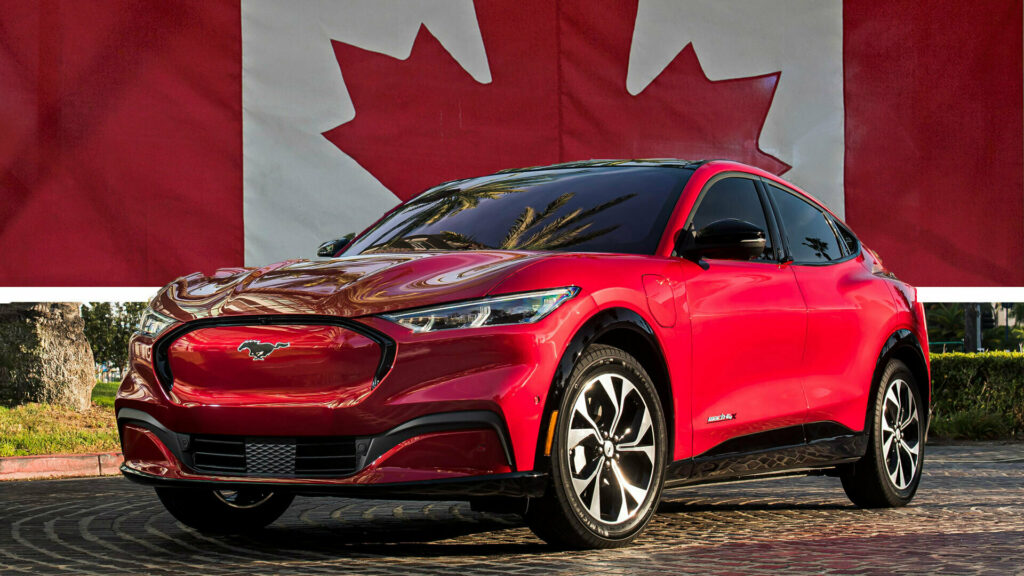- The US had been outpacing Canada in EV and PHEV adoption, but that changed this year.
- Eligible zero-emissions vehicles in Canada can get a federal rebate of up to CA$5,000 (~$3,600).
- Quebec has accounted for 50.6% of all new BEV registrations in Canada this year.
Sales of battery-electric vehicles and PHEVs are growing significantly quicker in Canada than in the United States, thanks partly to provincial incentives in Quebec and British Columbia.
By analyzing EV and PHEV sales data across the January-April periods in 2022, 2023, and 2024, S&P Global has determined that while the U.S. was outpacing Canada in EV and PHEV volume growth in 2022 and 2023, things have changed dramatically in 2024.
In fact, the number of BEV registrations in Canada has jumped 57% this year compared to 2023, while PHEV registrations have increased 75% through the first four months of 2024.
Read: Canada Mulls Tariffs On Chinese-Made EVs, But The Only One You Can Buy Is A Tesla
By comparison, growth has slowed significantly in the US. In January-April 2023, BEV registrations increased by approximately 137,000 units compared to January-April 2022 but in January-April this year, they have only risen by ~25,000 units.
Analysts believe that Canadian incentives are a significant contributor to the uptake of BEVs and PHEVs. The nation currently operates an Incentive for Zero-Emission Vehicles (iZEV) that provides buyers or lessees with a rebate of up to CA$5,000 (~$3,600). Those living in Quebec province can benefit from an even more generous incentive.
Quebec provides those buying or leasing a new BEV with up to CA$7,000 (~$5,100) while also offering CA$5,000 (~$3,600) for PHEV buyers. This ‘financial assistance program’ will be phased out in 2027. The province accounted for 50.6% of all BEV registrations through April this year, followed by British Columbia with 20.6% and Ontario with 22.5%.

S&P Global
In British Columbia, rebates of up to CA$4,000 (~$2,900) are offered for BEVs, while PHEVs are eligible for a CA$2,000 (~$1,450) rebate. Interestingly, Ontario doesn’t provide its own incentive program, meaning residents can only benefit from the national scheme.
Back home in the States, California remains the most crucial state for BEVs, accounting for 34% of all BEV registrations. The state has long been a trendsetter with new technologies and has strict emissions regulations, but it is also one of 15 US states that offer their own EV incentives alongside those offered by the federal government.





